Research from Yi Wang's lab has been published in Advanced Science
2022-01-17 | 药学院英文网
On Jan.14, Professor Yi Wang, College of pharmaceutic science Zhejiang University (CPS-ZJU) published the newest research entitledDiscovery of Herbacetin as a Novel SGK1 Inhibitor to Alleviate Myocardial Hypertrophy in Advanced Science, which was selected as the cover article.
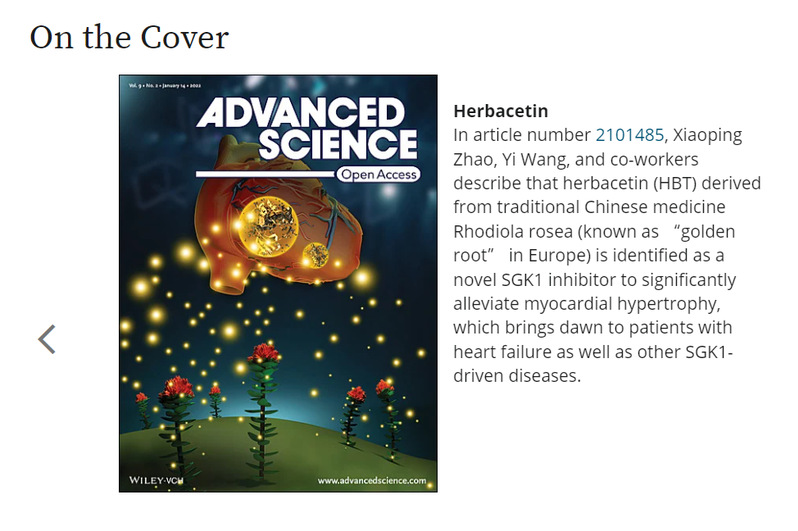
Cardiac hypertrophy is a pivotal pathophysiological step of various cardiovascular diseases, which eventually leads to heart failure and death. Extracts of Rhodiola species (Ext.R), a class of commonly used medicinal herbs in Europe and East Asia, can attenuate cardiac hypertrophy both in vitro and in vivo. Serum/glucocorticoid regulated kinase 1 (SGK1) is identified as a potential target of Ext. R. By mass spectrometry-based kinase inhibitory assay, herbacetin (HBT) from Ext.R is identified as a novel SGK1 inhibitor with IC50 of 752 nmol. Thermal shift assay, KINOMEscan in vitro assay combined with molecular docking proves a direct binding between HBT and SGK1. Site-specific mutation of Asp177 in SGK1 completely ablates the inhibitory activity of HBT. The presence of OH groups at the C-3, C-8, C-4’ positions of flavonoids is suggested to be favorable for the inhibition of SGK1 activity. Finally, HBT significantly suppresses cardiomyocyte hypertrophy in vitro and in vivo, reduces reactive oxygen species (ROS) synthesis and calcium accumulation. HBT decreases phosphorylation of SGK1 and regulates its downstream forkhead box protein O1 (FoxO1) signaling pathway. Taken together, the findings suggest that a panel of flavonoids structurally related to HBT may be novel leads for developing new therapeutics against cardiac hypertrophy.
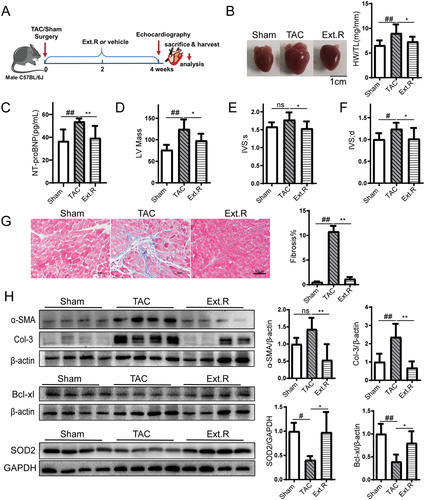
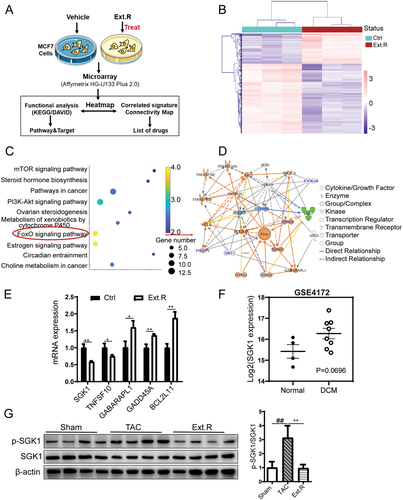
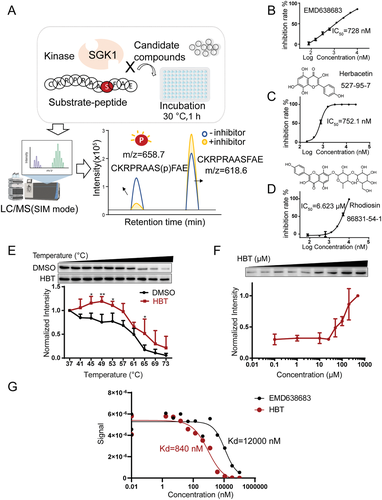
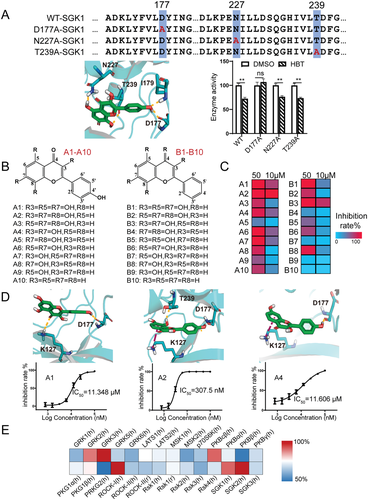
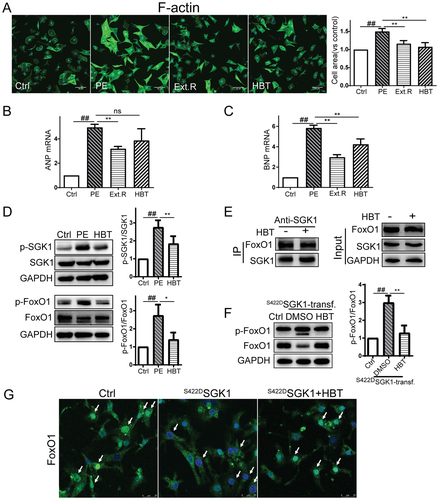
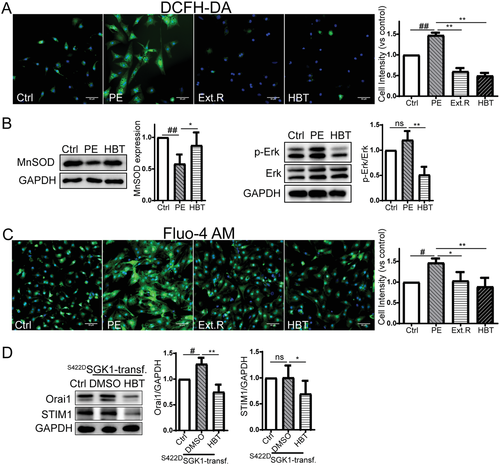

This work was carried out by Ph.D. student Shujing Zhang under the supervision of Professor Yi Wang, CPS-ZJU andProfessor Xiaoping Zhao, Zhejiang Chinese Medical University.
Link:https://onlinelibrary.wiley.com/doi/10.1002/advs.202101485
NEWS
-
10
2025.12
-
27
2025.11
-
25
2025.11
-
03
2025.11
-
30
2025.10
-
29
2025.10
